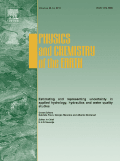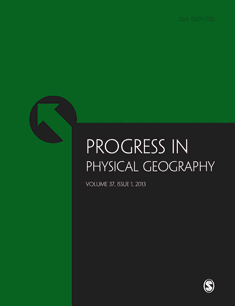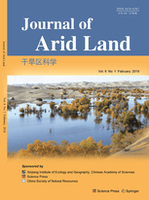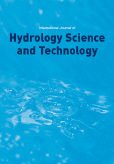
Acta Scientiarum Polonorum-Formatio Circumiectus
Scope & Guideline
Championing open access to vital environmental knowledge.
Introduction
Aims and Scopes
- Environmental Assessment and Management:
Focuses on the evaluation and management of environmental impacts, including land use changes, hydrological assessments, and ecological stability. - Sustainable Land Use Practices:
Explores sustainable practices in land use, restoration of affected territories, and strategies to enhance land productivity while minimizing ecological footprints. - Climate Change Adaptation and Mitigation:
Researches the impacts of climate change on various ecosystems and human activities, promoting strategies for adaptation and mitigation. - Technological Innovations in Environmental Science:
Incorporates advancements in technology, such as remote sensing, GIS, and microbial fuel cells, to improve environmental monitoring and resource management. - Ecosystem Services and Biodiversity:
Analyzes the role of ecosystem services in urban and rural landscapes, emphasizing the importance of biodiversity in environmental planning and management.
Trending and Emerging
- Climate Resilience and Community Adaptation:
Recent publications highlight the importance of building resilience in communities against environmental shocks, particularly in coastal and urban settings, indicating a growing focus on social dimensions of climate adaptation. - Impact of Conflict on Environmental Management:
The exploration of environmental restoration in conflict-affected regions, such as Ukraine, demonstrates an emerging interest in the intersection of geopolitics and environmental sustainability. - Innovative Wastewater Treatment Solutions:
Research on novel approaches for wastewater treatment, including the use of microbial fuel cells, indicates a trend towards integrating technology in environmental remediation practices. - Biodiversity and Ecosystem Services in Urban Planning:
Increasing attention is being given to the role of urban green spaces and biodiversity in enhancing ecosystem services, reflecting a shift towards sustainable urban development. - Geospatial Technologies and Environmental Monitoring:
The application of geospatial tools and data analytics in environmental research is on the rise, showcasing the importance of technology in addressing complex environmental challenges.
Declining or Waning
- Traditional Agriculture Studies:
Research related to conventional agricultural practices seems to be waning as the focus shifts towards innovative and sustainable agricultural methodologies. - Historical Environmental Studies:
The emphasis on historical analyses of environmental changes is diminishing, possibly due to a growing interest in real-time data and contemporary issues. - Urban Heat Island Studies:
Research specifically targeting urban heat island effects has seen less frequent publication, suggesting a potential shift towards broader urban ecological studies.
Similar Journals

PHYSICS AND CHEMISTRY OF THE EARTH
Innovating Research in Geophysics and PetrologyThe Physics and Chemistry of the Earth is a premier interdisciplinary journal published by Pergamon-Elsevier Science Ltd, dedicated to advancing the understanding of Earth sciences through the integration of geophysical and geochemical perspectives. With an ISSN of 1474-7065 and an E-ISSN of 1873-5193, the journal serves as a critical platform for researchers and professionals to disseminate key findings and innovative methodologies in the realms of geophysics and petrology. As of 2023, it proudly holds a Q2 ranking in both Geochemistry and Petrology and Geophysics, reflecting its robust impact in the scientific community, with Scopus rankings that position it in the top 20% and 32% of its respective categories. Notably, the journal is available in an open-access format, allowing for greater dissemination and accessibility of research contributions. With a publication history spanning from 1992 to 2024, Physics and Chemistry of the Earth stands as a vital resource for ongoing research and discovery in the Earth sciences, making it an essential read for academics and practitioners alike.

Progress in Physical Geography-Earth and Environment
Shaping understanding of our planet's complexities.Progress in Physical Geography-Earth and Environment is a premier academic journal published by SAGE Publications Ltd, renowned for its contributions to the fields of Earth and Planetary Sciences and Geography. With a distinguished history spanning from 1977 to 2024, this journal maintains a robust Q1 classification in both Earth and Planetary Sciences and Geography, Planning and Development, reflecting its high impact and rigorous scholarly standards. As evidenced by its Scopus rankings, it stands at the forefront of research, positioned in the 89th percentile among leading journals. Progress in Physical Geography aims to facilitate the exchange of innovative research, insights, and methodologies, making it an essential resource for researchers, professionals, and students dedicated to understanding and shaping the natural environment. While currently not designated as an Open Access journal, the wide accessibility of its content, combined with its significant impact factor, underscores its importance within the academic community seeking to advance knowledge and application in geography and environmental sciences.

Folia Oecologica
Pioneering Research in Environmental Sciences.Folia Oecologica is a distinguished open-access journal published by WALTER DE GRUYTER GMBH, focusing on critical research in the fields of agricultural and biological sciences, ecology, and forestry. Established as a vital platform for the dissemination of knowledge, this journal has been providing free access to its valuable content since 2017, catering to an international audience engaged in environmental and ecological studies. With its ISSN 1336-5266 and E-ISSN 1338-7014, Folia Oecologica has earned notable ranks in Scopus, placing it in the 62nd percentile for Agricultural and Biological Sciences and the 50th percentile for Environmental Science. The journal's commitment to high-quality research is reflected in its positions in the Q2 and Q3 quartiles across various categories in 2023. As it converges years from 2006 to 2024, Folia Oecologica continues to foster scholarly dialogue and collaboration among researchers, professionals, and students, making significant contributions to the understanding and preservation of our ecological systems.

EQA-International Journal of Environmental Quality
Innovative research for a cleaner, greener world.EQA-International Journal of Environmental Quality, published by the University of Bologna, Department of Agricultural Sciences, is a premier open-access journal dedicated to the multidisciplinary exploration of environmental quality issues. Established in 2009, it aims to foster a greater understanding of the intricate interactions between human activities and environmental health. With a focus on innovative research, the journal contributes to the advancement of knowledge across diverse fields, making it an essential resource for researchers, professionals, and students engaged in environmental science and sustainability. The journal operates with an emphasis on accessibility, ensuring that critical findings reach a global audience without barriers. With an impressive Scopus rank of 88 out of 171, EQA stands as a significant platform for disseminating impactful research that informs policy and promotes environmental stewardship.

EARTH
Transforming understanding through multidisciplinary insights.EARTH is a prestigious journal published by MDPI, located in Switzerland, with a commitment to advancing the fields of Earth and Planetary Sciences and Environmental Science. Launched in 2020, the journal emphasizes an open-access publication model, ensuring that high-quality research is widely accessible to the scientific community and beyond. As of 2023, it proudly holds a Q2 ranking in both the Environmental Science and Earth and Planetary Sciences categories, indicating its significant impact within these disciplines; it ranks #90 out of 219 and #70 out of 159 in their respective fields according to Scopus. With the convergence of multidisciplinary research and the critical challenges our planet faces, EARTH seeks to publish innovative studies that foster a deeper understanding of geological and environmental processes. Researchers, professionals, and students alike will find this journal an invaluable resource for the latest findings and discussions shaping our understanding of Earth sciences.

Journal of Arid Land
Exploring sustainable solutions for arid ecosystems.Journal of Arid Land, published by SPRINGER HEIDELBERG, is a pivotal platform dedicated to advancing knowledge in the fields of Earth-Surface Processes, Management, Monitoring, Policy and Law, and Water Science and Technology. With an ISSN of 1674-6767 and an E-ISSN of 2194-7783, this journal stands out as a prominent source of scholarly research focusing on the unique challenges and opportunities of arid and semi-arid environments, particularly relevant in the context of global climate change. As of 2023, it holds a commendable Q2 ranking in several critical categories, underscoring its impact in environmental science and related disciplines. The journal, which has been in publication since 2009 and is set to continue through 2024, provides unrestricted access to high-quality research that sheds light on sustainable practices and effective policies. With its focus on arid lands, the Journal of Arid Land plays an essential role in fostering interdisciplinary dialogue among researchers, practitioners, and policymakers striving to address the pressing issues faced by these ecosystems.

Geography and Natural Resources
Exploring the Nexus of Geography and SustainabilityGeography and Natural Resources is a vital academic journal published by MAIK NAUKA/INTERPERIODICA/SPRINGER, focusing on diverse aspects of geography, natural resource management, and environmental sciences. With its ISSN 1875-3728 and E-ISSN 1875-371X, the journal serves as a platform for scholars and researchers to disseminate their findings in a rapidly evolving field. The journal holds a respectable Q3 ranking in the categories of Earth-Surface Processes and Geography, Planning and Development, as well as a Q4 ranking in Management, Monitoring, Policy, and Law, reflecting its commitment to quality research. Although it is not an open-access journal, it offers valuable insights and impactful articles tailored for professionals and academics interested in the intersection of human and environmental systems. By bridging theoretical and practical applications, Geography and Natural Resources plays a crucial role in guiding policies and enhancing understanding of sustainable development from 2008 to 2024 and beyond, making it an indispensable resource for the global scholarly community.

GLOBAL JOURNAL OF ENVIRONMENTAL SCIENCE AND MANAGEMENT-GJESM
Championing open access to vital environmental research.Global Journal of Environmental Science and Management (GJESM), published under the distinguished leadership of Professor J. Nouri, is an esteemed academic platform dedicated to advancing the interdisciplinary discourse surrounding environmental science and management. With an ISSN of 2383-3572 and an E-ISSN of 2383-3866, GJESM has established itself as a prominent Open Access journal since 2014, allowing for unrestricted sharing of knowledge and research findings. Based in Iran, this journal caters to a diverse global audience, featuring contributions that span various critical domains including agricultural and biological sciences, environmental engineering, pollution management, and social sciences, evidenced by its impressive 2023 Q1 and Q2 quartile rankings across multiple categories. The journal’s Scopus rankings demonstrate a robust standing in the academic landscape, with exciting placements that underscore its relevance in key fields. By bridging the gap between scientific inquiry and practical application, GJESM serves as a vital resource for researchers, practitioners, and students seeking to understand and address the pressing environmental challenges faced by our planet today.

Revista Agrogeoambiental
Advancing Sustainability Through Interdisciplinary ResearchRevista Agrogeoambiental is a prestigious open-access academic journal dedicated to the field of agricultural and environmental sciences. Published by INST FEDERAL SUL MINAS GERAIS-I FSULDEMINAS since 2009, this journal stands as a vital forum for the dissemination of research findings, innovative methodologies, and interdisciplinary studies that address critical issues in agriculture and environmental sustainability. With a focus on promoting knowledge exchange among researchers, practitioners, and educators, Revista Agrogeoambiental seeks to enhance understanding of agroecological systems and their interaction with geospatial frameworks. As an open-access journal, it ensures that cutting-edge research is accessible to a wide audience, thereby fostering collaboration and knowledge-sharing in the global academic community. Researchers and professionals can benefit from the journal's commitment to high standards of scholarship, as well as its role in shaping policy and practice within the agricultural and environmental sectors.

International Journal of Hydrology Science and Technology
Advancing Hydrological Insights for a Sustainable FutureThe International Journal of Hydrology Science and Technology, published by InderScience Enterprises Ltd, is a distinguished platform dedicated to advancing knowledge in the field of hydrology, environmental engineering, and water science. With an ISSN of 2042-7808 and an E-ISSN of 2042-7816, this journal, established in 2011 and continuing through 2024, serves as an essential resource for researchers, professionals, and students alike. Despite being categorized in the Q3 quartile across multiple disciplines including Earth and Planetary Sciences, Environmental Engineering, Waste Management and Disposal, and Water Science and Technology, the journal maintains a reputation for contributing significant findings that impact both theory and practical applications in addressing hydrological challenges. Currently unavailable through Open Access options, the journal remains committed to disseminating valuable research that informs sustainable practices in water resource management. The editorial team encourages submissions that explore innovative strategies and methodologies while fostering interdisciplinary discussions, making this journal a pivotal player in shaping the future of hydrological science.